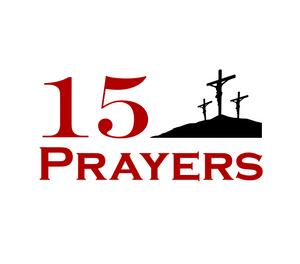
Book VII
Of the “select gods” of the civil theology, and that eternal life is not obtained by worshipping them.
Chapter 1
Whether, since it is evident that Deity is not to be found in the civil theology, we are to believe
that it is to be found in the select gods.Chapter 2
Who are the select gods, and whether they are held to be exempt from the offices of the
commoner gods.Chapter 3
How there is no reason which can be shown for the selection of certain gods, when the
administration of more exalted offices is assigned to many inferior gods.Chapter 4
The inferior gods, whose names are not associated with infamy, have been better dealt with than the select gods, whose infamies are celebrated.
Chapter 5
Concerning the more secret doctrine of the pagans, and concerning the physical interpretations.
Chapter 6
Concerning the opinion of Varro, that God is the soul of the world, which nevertheless, in its
various parts, has many souls whose nature is divine.Chapter 7
Whether it is reasonable to separate Janus and Terminus as two distinct deities.
Chapter 8
For what reason the worshippers of Janus have made his image with two faces, when they
would sometimes have it be seen with four.Chapter 9
Concerning the power of Jupiter, and a comparison of Jupiter with Janus.
Chapter 10
Whether the distinction between Janus and Jupiter is a proper one.
Chapter 11
Concerning the surnames of Jupiter, which are referred not to many gods, but to one and the
same god.Chapter 12
That Jupiter is also called Pecunia.
Chapter 13
That when it is expounded what Saturn is, what Genius is, it comes to this, that both of them
are shown to be Jupiter.Chapter 14
Concerning the offices of Mercury and Mars.
Chapter 15
Concerning certain stars which the pagans have called by the names of their gods.
Chapter 16
Concerning Apollo and Diana, and the other select gods whom they would have to be parts
of the world.Chapter 17
That even Varro himself pronounced his own opinions regarding the gods ambiguous.
Chapter 18
A more credible cause of the rise of pagan error.
Chapter 19
Concerning the interpretations which compose the reason of the worship of Saturn.
Chapter 20
Concerning the rites of Eleusinian Ceres.
Chapter 21
Concerning the shamefulness of the rites which are celebrated in honour of Liber.
Chapter 22
Concerning Neptune and Salacia, and Venilia.
Chapter 23
Concerning the earth, which Varro affirms to be a goddess, because that soul of the world
which he thinks to be God pervades also this lowest part of his body, and imparts to it a divine
force.Chapter 24
Concerning the surnames of Tellus and their significations, which, although they indicate many properties, ought not to have established the opinion that there is a corresponding number of gods.
Chapter 25
The interpretation of the mutilation of Atys which the doctrine of the Greek sages set forth.
Chapter 26
Concerning the abomination of the sacred rites of the Great Mother.
Chapter 27
Concerning the figments of the physical theologists, who neither worship the true divinity, nor perform the worship wherewith the true divinity should be served.
Chapter 28
That the doctrine of Varro concerning theology is in no part consistent with itself.
Chapter 29
That all things which the physical theologists have referred to the world and its parts, they
ought to have referred to the one true God.Chapter 30
How piety distinguishes the Creator from the creatures, so that, instead of one God, there are
not worshipped as many gods as there are works of the one author.Chapter 31
What benefits God gives to the followers of the truth to enjoy over and above His general
bounty.Chapter 32
That at no time in the past was the mystery of Christ’s redemption awanting, but was at all
times declared, though in various forms.Chapter 33
That only through the Christian religion could the deceit of malign spirits, who rejoice in the
errors of men, have been manifested.Chapter 34
Concerning the books of Numa Pompilius, which the senate ordered to be burned, in order that
the causes of sacred rites therein assigned should not become known.Chapter 35
Concerning the hydromancy through which Numa was befooled by certain images of demons seen in the water.

